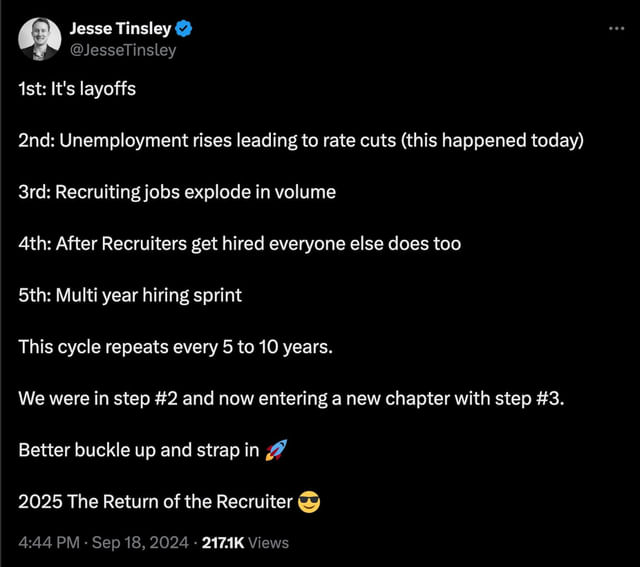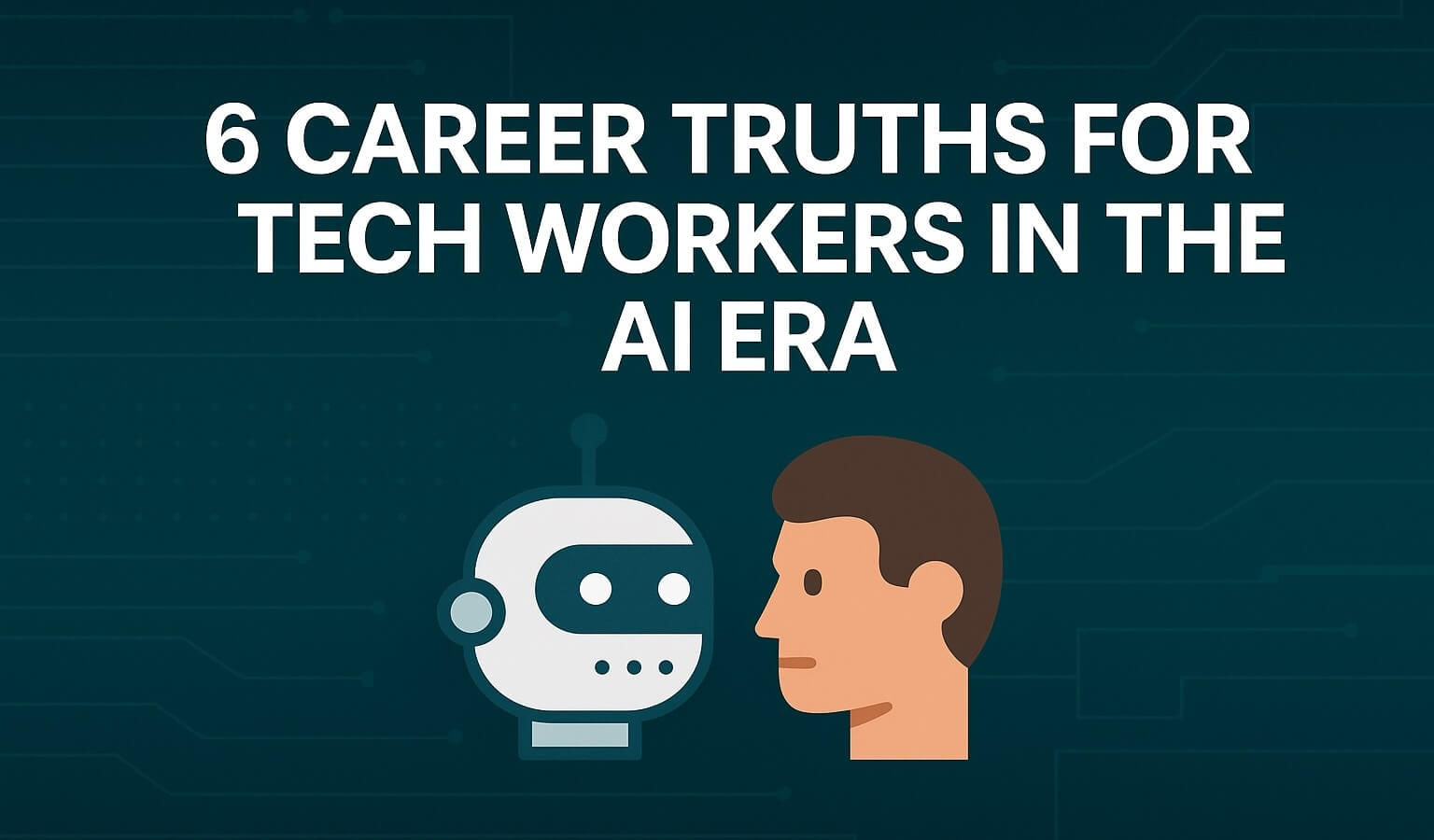In the ever-evolving landscape of the tech industry, we find ourselves at a critical juncture.
The past year has been tumultuous, with nearly 300,000 layoffs in 2023 and already 60,000 in 2024.
As developers, we’re facing unprecedented challenges, and it’s natural to feel uncertain about the future.
But before we succumb to despair or contemplate switching careers, let’s take a rational look at our current situation and explore strategies to not just survive, but thrive in this new reality.
The Current State of Tech Layoffs and Developer Jobs
Times are undeniably tough, especially for junior developers and those trying to break into the industry after tech layoffs. The competition is fierce, with experienced developers who were recently laid off also competing for available positions.
Some seasoned professionals even seem to relish this “purging of newbies” and “cleansing of imposters,” as seen in various Reddit threads. It’s a harsh environment, no doubt.

And then there’s AI – the elephant in the room.
While it’s not outright taking our jobs, AI has become an attractive option for tech organizations looking to streamline processes and reduce menial work. This adds another layer of complexity to an already challenging job market.
So, what do we do?
How do we navigate these turbulent waters?
Let’s break it down into four key strategies that can help us not only weather this storm but come out stronger on the other side.
1. Hone Your Skills: Excellence in a Skill-Based Economy
The days of impressing employers with basic skills like building landing pages are over. AI can now handle many of these tasks with ease.
We’re no longer in a demand-driven economy; we’re in a skill-based one.
With a surplus of talent and limited job openings, employers have the upper hand. They’re looking for skilled workers who can bring real value to their organizations.
This means it’s time to double down on your craft. If you’re primarily working with React, it’s not enough to know the basics anymore. Dive into advanced React concepts, explore state management libraries, and master performance optimization techniques.
For example, this book would be a great starting point.

If Kubernetes is your thing, aim for those CKA or CKS certifications. Remember, AI isn’t going to be managing complex Kubernetes clusters anytime soon.
Don’t neglect your computer science fundamentals either. Now is the perfect time to revisit data structures and algorithms. These concepts form the backbone of problem-solving in software development and will serve you well regardless of the specific technologies you work with. If you’re new to this, start with a book like “Grokking Algorithms” and work your way through it.
By deepening your expertise, you’re not just preparing for the post-layoff job market – you’re positioning yourself as an expert for when tech hiring inevitably rebounds.
2. Stay Optimistic: Economic Recovery is on the Horizon
While the current wave of tech layoffs might seem bleak, it’s crucial to remember that these cycles are temporary. We’ve just seen our first interest rate cut, with two more expected by the end of the year. While these cuts don’t guarantee immediate results (and can sometimes signal expectations of worsening conditions), they generally lead to economic relief over time.
As the pressure on the economy eases, businesses will likely feel more confident about spending and borrowing. This, in turn, will drive growth, creating more work and, consequently, more jobs.
A tweet by Jesse Tinsley outlines an interesting economic cycle that’s worth considering:

While we might debate the exact timeline or the intensity of each phase (the word “explode” in relation to recruiting jobs might be a bit optimistic), this cycle has repeated itself numerous times in the tech industry. For many of us, this might be our first experience with such widespread tech layoffs, but it’s far from unprecedented.
The big question on everyone’s mind is whether these new positions will be filled by humans or AI solutions. While we can’t predict the future with certainty, we can make some educated guesses based on what we know:
- AI is not yet ready for full-scale production deployment in most cases.
- AI is primarily taking over menial, repetitive tasks that many people don’t enjoy anyway.
- The role of a software developer encompasses far more than just writing code. It involves problem-solving, soft skills, precise solution design, and infrastructure management – areas where AI still falls short.
This is why software development, IT administration, and engineering roles are likely to remain in demand for the foreseeable future. AI may be able to handle certain aspects of our work, but it represents only a fraction of the value that a skilled professional brings to the table.
3. Embrace AI: Adopt a Positive Outlook on Technological Evolution
It’s clear that AI isn’t going away. In fact, we’re likely at a significant turning point in history. As AI takes over more routine tasks, we should also expect to see new innovations and opportunities emerging.
Instead of fearing AI, try to embrace it or at least adopt a positive outlook towards a future where AI plays a significant role.
Don’t be the curmudgeon who resists change. Instead, educate yourself about AI and its potential applications in business.
Read books like “The Business Case for AI” to understand how companies are successfully integrating AI into their operations.
Remember, as software engineers, we’re uniquely positioned to benefit from this AI revolution. After all, AI systems need to be developed, maintained, and integrated into existing infrastructure – all tasks that fall squarely within our domain of expertise.
4. Recognize Your Business Value: Think Beyond Traditional Employment
It’s time to shift your perspective and see yourself not just as an employee, but as a business. You’re in the business of creating software solutions for customers, and your current employer is simply your primary client.
But why stop there? What else can you do with your skills? Could you create a SaaS product? Start a consulting business? Offer AI training or consulting services to companies looking to integrate these new technologies?
The current wave of tech layoffs and tight job market has pushed many developers to take matters into their own hands. We’re seeing countless examples of individuals building apps, creating businesses, starting YouTube channels, or partnering with small startups on innovative projects.
The internet has opened up a world of opportunities for those with programming skills. Don’t limit yourself to thinking only in terms of traditional employment. When you broaden your perspective and combine your programming skills with the vast potential of the internet, the possibilities are truly endless.
Conclusion: Seize the Opportunity
As we navigate these tech layoffs and challenging job market conditions, it’s important to focus on what we can control. First and foremost, use this time to hone your craft. Become exceptionally good at what you do. Develop your technical skills, but don’t neglect your soft skills either – they’re often what set great developers apart from good ones.
Secondly, maintain perspective. The economy will turn around; it always does. It may take time, but staying prepared and optimistic will serve you well when it does.
Finally, embrace the changes happening around us. See AI not as a threat, but as an opportunity to evolve and grow. Change your mindset from that of an employee to that of a business owner.
You are the business, and the internet is your marketplace.
This page may contain affiliate links. Please see my affiliate disclaimer for more info.



